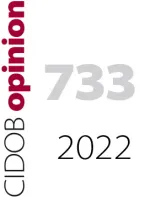How long will Truss last

British new prime minister, Liz Truss, will be soon confronted with the task of bridging the gap between campaign promises and government delivery. If Truss chooses to prioritise tax cuts for the better off and rules out welfare “handouts” for poorer families in the face of unprecedented rises in energy prices, she will get off to a bumpy ride. The last two Conservative prime ministers, Teresa May and Boris Johnson, lasted less than three years. In both cases they were thrown out by revolts of their own party in parliament.
“The cliché has it that politicians campaign in poetry and govern in prose”, writes Philip Stephens, contributing editor to the Financial Times. Liz Truss will quickly be confronted with the task of bridging the gap between promises she made on the campaign trail and the prosaic truth of what is possible in government. “With Truss –Stephens goes on, the danger is entirely different. It is not that she will fall short on delivery, but that she will actually try and keep her pledges.”
Two examples spring to mind. She wants to shrink government in the midst of a crisis unprecedented since 1940, when energy bills are set to skyrocket and the National Health Service is buckling under the strain, not just of Covid-19 but years of underfunding. Meanwhile, the hapless Conservative Party is about to find out what the Brexit many of them fervently voted for actually means. The future of EU-UK relations is at stake after Truss effectively broke off meaningful talks of reforming a post-Brexit deal on trade with Northern Ireland in favour of unilateral action. The new prime minister intends to launch legislation to rip up much of the Northern Ireland protocol – the agreement that keeps the region in the EU’s single market for goods to avoid a trade border on the island of Ireland that could threaten the fragile peace there. Forcing an early confrontation with the EU on this issue would reassure the conservative right, always on the look out for the next betrayal. She would send a strong signal that she is not about to sell them out.
It is ironic that the UK should signal its intent to tear up an international agreement it has signed with the EU on Northern Ireland at the very time it voices strong opposition to Vladimir Putin’s failing to show respect for the international boundaries of, and invading, Ukraine. The list goes on: Truss will simply “ignore” Scotland’s elected first minister if the government in Edinburgh decides to go for a second referendum on Scottish independence.
Truss will not be able to discard the bitterness left by the contest with the former chancellor Rishi Sunak who thinks that the new prime minister is economically illiterate, a judgement shared by the Treasury and most economists. Less we forget, the vote which delivered the keys of Downing Street to Liz Truss was that of roughly 160,00 members of the Conservative Party, most of whom are white males over 65 and well off.
She sees herself as the heir to Boris Johnson but does that mean she shares his practise of lying to himself as much as to the country and his narcissism? She sees herself as the reincarnation of Margaret Thatcher but aping her clothes does not work. The Iron Lady had strong convictions, took huge pains to establish well thought through policies, not least before she came to power in 1979 and chose advisers who carried intellectual ballast. None of these characteristics apply to Truss who was a Young Liberal activist in her salad days and campaigned against Brexit in 2016. She has very strong convictions but they change as often as the late Queen changed hats.
The Tory grass roots may love her but Sunak won the leadership ballot among MPs. A cabinet full of Brexit fundamentalists like Jacob Rees-Mogg and Nadine Dorries and careerists will offer a cheap version of the Commedia dell’Arte or more likely an opera buffa but hardly the gravitas and the political nous which are essential in the face of the worse crisis the UK has confronted in 80 years.
If the new prime minister chooses to prioritise tax cuts for the better off and rules out welfare “handouts” for poorer families in the face of unprecedented rises in energy prices, she will get off to a bumpy ride. The threat of a trade war with Brussels will only weaken business confidence which is already very low.
Will she steer back towards more “centrist” – some would simply call it saner ground when she enters Downing Street? Such a course would raise howls of anguish for the likes of Rees-Mogg. But she does have the chance to spring a surprise and show that she understands voters deep worries – a generous energy package which helps both businesses and households would give voters a positive impression of the new prime minister. Even the right-wing conservatives appreciate the depth of fear stalking millions of people about their energy bills. The next few weeks will tell whether she is truly convinced that “the market is always right” ideology of yesteryear still works.
The last two Conservative prime ministers, Teresa May and Boris Johnson, lasted less than three years. In both cases they were thrown out by revolts of their own party in parliament. Liz Truss might well enjoy the comforts of Number 10 Downing Street for an even shorter period.
Keywords: UK, Truss, Downing Street, premier, Conservative Party, energy crisis, Boris Johnson, Rishi Sunak, Northern Ireland